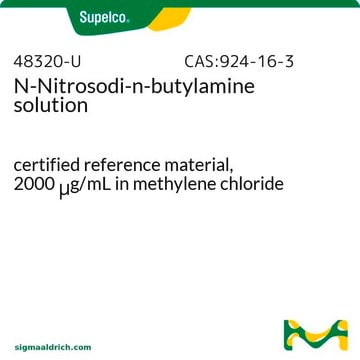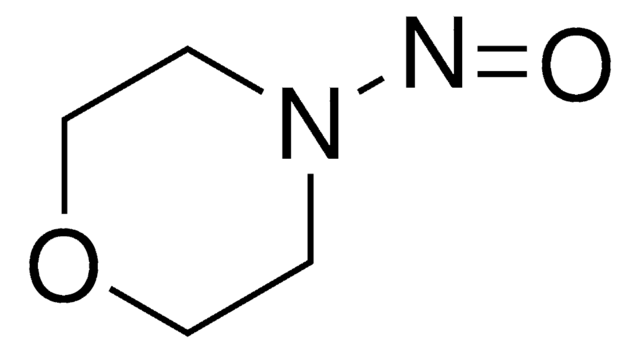73861
N-Nitrosodiethylamine
≥99.0% (GC)
Synonym(s):
Diethylnitrosamine
About This Item
Recommended Products
Assay
≥99.0% (GC)
form
liquid
IVD
for in vitro diagnostic use
bp
177 °C (lit.)
density
0.95 g/mL (lit.)
SMILES string
CCN(CC)N=O
InChI
1S/C4H10N2O/c1-3-6(4-2)5-7/h3-4H2,1-2H3
InChI key
WBNQDOYYEUMPFS-UHFFFAOYSA-N
Looking for similar products? Visit Product Comparison Guide
Related Categories
Application
- α-Amino oxime derivatives from alkenes via visible-light-induced photoaddition in the presence of HCl.
- Diethylnitrosamine metalloporphyrin complexes from metalloporphyrins in the presence of dichloromethane.
Signal Word
Danger
Hazard Statements
Precautionary Statements
Hazard Classifications
Acute Tox. 3 Oral - Aquatic Chronic 3 - Carc. 1B
Storage Class Code
6.1C - Combustible acute toxic Cat.3 / toxic compounds or compounds which causing chronic effects
WGK
WGK 3
Personal Protective Equipment
Certificates of Analysis (COA)
Search for Certificates of Analysis (COA) by entering the products Lot/Batch Number. Lot and Batch Numbers can be found on a product’s label following the words ‘Lot’ or ‘Batch’.
Already Own This Product?
Find documentation for the products that you have recently purchased in the Document Library.
Customers Also Viewed
Our team of scientists has experience in all areas of research including Life Science, Material Science, Chemical Synthesis, Chromatography, Analytical and many others.
Contact Technical Service








